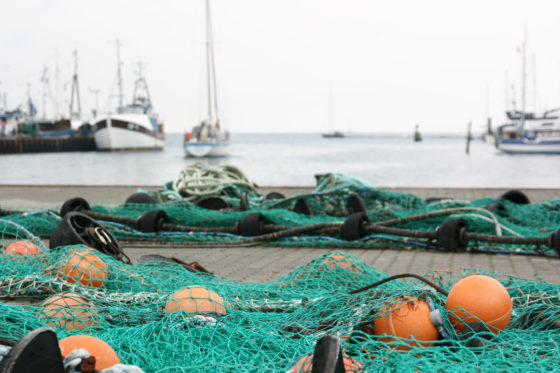
Sotenäs, a municipality on the Swedish West coast, has been running a ghost fishing project since 2017 where they find and retrieve lost fishing gear. Lost fishing gear such as lobster tins in the sea leads to fish and shellfish finding their way into them and eventually dying, so-called ghost fishing.
Last Friday, February 18, the municipality’s fishermen, who are working for the ghost fishing project, made a record catch, the municipality reports on their Facebook page.
At the moment there are four boat teams dragging for lost gear on behalf of the municipality. A specially made drag has been developed by Smögenvarvet AB, which gives extra efficient results.
When fishermen towed in Hållöfjorden last Friday, they found 34 lobster tins, which is a record in a single day. About two weeks ago, they pulled in the same place and then got 28 tins.
“You would think that the sea is cleared now out there, but that is obviously not the case. We therefore urge people not to put lobster tins in or too close to the fairway”, says project manager Per-Olof Samuelsson.
A total of 950 lost lobster tins have been retrieved from the sea since the project began in 2017.
“The project runs until February 2023, but we intend to continue to apply for financial support from the Swedish Board of Agriculture and the Fisheries Fund so that we can continue”, says Per-Olof Samuelsson.
Thanks to the fact that the lobster tins have now been removed, lobsters and fish are not caught unnecessarily and starve to death.
“Ghost fishing” occurs when abandoned fishing gear dumped in the ocean traps and kills fish or other underwater life, and it is causing devastation to marine environments, warns the UN food agency, FAO.
The scale of the problem has now grown so great, that it needs to be tackled urgently, for the sake of both marine life, and the people whose lives depend on it” FAO estimates that some 640,000 tonnes of fishing gear is lost or abandoned in the ocean every year, making up around one tenth of all ocean waste.
As well as killing species such as dolphins, seals and turtles, derelict gear, says the FAO, can alter the seabed and marine environment, putting boats at risk, and can wash up on the beach, becoming a danger to beach-goers and coastal species alike.
In the EU, fishermen who lose their gear and fail to salvage it must report their loss, in accordance with EU Control Regulation (1224/2009) Article 48. The report must be submitted within 24 hours after the salvage attempt has been completed.
In Sweden, the loss must be reported to the Swedish Maritime Administration’s FMC (Fisheries Monitoring Center), tel. +46 771-10 15 00. The information is important because it can be used to locate and retrieve the gear.
A checklist for how to act if you lose or find a lost fishing gear can be found here.